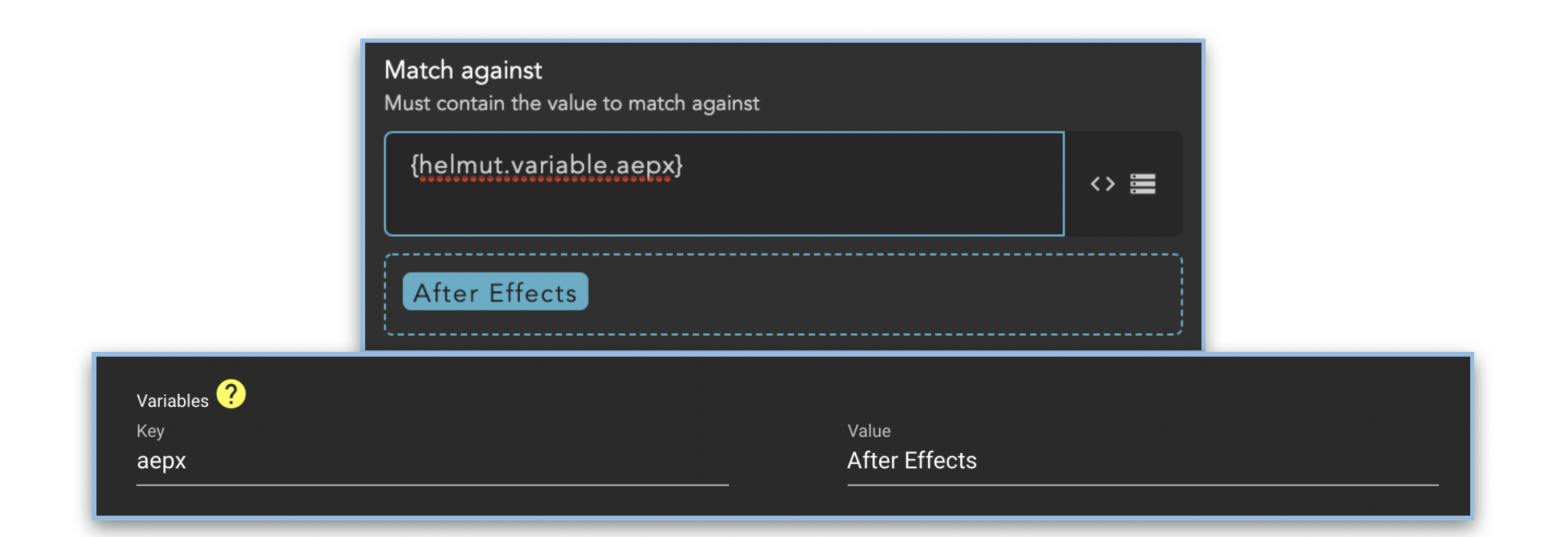Wildcards
Overview
Wildcards serve to dynamically alter the behavior of nodes within the stream. This approach eliminates the need for creating new nodes for each condition, as a placeholder can be chosen for the condition, simplifying the process to a single node.
Examples:
Example 1
To guide the flow of a stream triggered by the "create project" trigger based on a condition that evaluates to true for a specific user and false for another, you can employ the {user.name} wildcard within the "wildcard condition" node. This "placeholder" dynamically replaces itself with the username that initiated the stream, allowing for a direct comparison against the desired value.
Example 2
A practical application of predefined paths in Helmut4 can be found in the Helmut4 preferences.
The {helmut.projects} placeholder, when used within a node, always corresponds to the path for projects. This simplifies and enhances flexibility in configurations.
Example 3
In the screenshot below, the value-checking field is populated with a wildcard, extracting its value from a helmut variable defined in preferences named "aepx," which is set to "After Effects."
Anywhere in the stream where "After Effects" needs to be written or utilized, the wildcard {helmut.variable.?} can be employed, replacing the question mark with the key “aepx.”.
